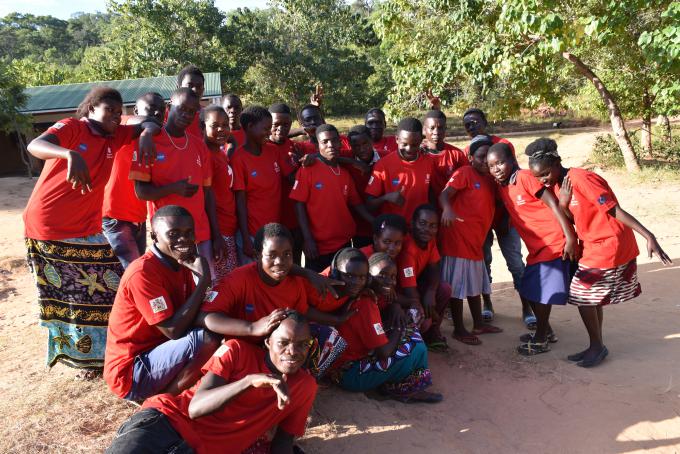Innovative Approach Solves Economic, SRH Needs For Youths
In January 2017, 24-year-old Philemon Chimbalu from Nkhatabay District, northern Malawi joined Nkhuluzi Tigwirizane Youth Club. He had one goal in mind when joining: raise money through the village savings and loans (VSL) – a component under the youth club so that he could prepare for migration to South Africa in search of greener pastures.
By this time, Philemon was married and had two children. Philemon attests it was not easy to provide for his family.
The youth club was formed in 2016 with support from Save the Children to champion sexual and reproductive health (SRH) rights for adolescent and young people.
In Malawi, young people (10-24 years old) account for 32.3% of population but they still do not have access to SRH services appropriate to their age, even though they are the most exposed to SRH related risks. Adolescent fertility rate in Malawi is at (177 births per 1,000 women aged 15-19 years) and studies indicate that adolescents account for 20.6 % of all maternal deaths in the country. Induced abortion is the cause of between 5% and 18% of maternal deaths in this age group.
Nkhatabay is among the districts with the worst reproductive health indicators.
Tigwirizane Youth Club Members
To contribute towards reversing this trend, Save the Children has been, since 2016, implementing a project titled Comprehensive Sexuality Education and Family Planning for Protection and Empowerment of Adolescents and Women in Malawi (EC-SRH).
With support from the EU, the project is making existing SRHR services accessible and affordable, youth-centered, capacities of health staff enhanced, FP/SRH with HIV/AIDS services integrated and is enhancing the demand for quality and youth-friendly services.
The VLS component aims at increasing young people’s negotiation power for family planning and safer sex through economic empowerment.
Philemon says he found only the VSL component attractive but later realized the SRH component was equally ideal for him.
“All meetings we held started with sharing SRH information and experiences; practicing drama and many other innovations for disseminating information. I found this to be boring. I was just hanging on, waiting for the VSL part to come,” he says.
However, Philemon says he soon realized the messages were helpful.
“I got married in 2014 at the age of 14 when I impregnated a girl. This girl was 15 years old and still in primary school when we married.
“When I acquired knowledge about early pregnancies and early marriages, I advised my wife to also join a similar youth club. She was exposed to SRH messages, and she met role models who came to give talks.
“Following this, we made an informed decision to end our marriage as we were both young and we are both planning to go back to school,” he says.
With the loans he accessed from the VSL, Philemon has started animal and crop farming and he says he no longer needs to travel to South Africa in search of greener pastures.

Philemon feeding his livestock
To enhance availability of SRH services, the project trained 206 Youth Community Based Distribution Agents (YCBDAs) from the 171 out of school clubs. The project also has 219 in school clubs.
The project has reached 500,000 young people (Male 293,013 and Female 306,189).
The project has 36 VSL groups, two in each of the 18 Traditional Authorities where the project is active.
 Malawi
Malawi 